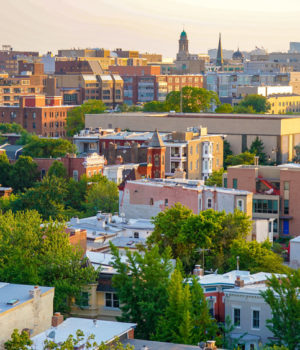Written by Joey Slusher
Since 1949, with the admission of Alaska and Hawaii to the union, the United States has had a nice and even 50 states. Alaska and Hawaii closed out a long tradition of adding stars to the flag, which had been commonplace from the country’s inception as it grew to fill the area between the Atlantic and Pacific coastlines.
For 62 years, America has grown accustomed to this number represented by the stars on the flag and conveniently called the “Fifty-Nifty-United States,” which many young Americans sang in elementary school. These facts have become half-hearted attacks against the movement toward statehood for numerous territories which are controlled by the U.S. The fastest growing and most likely of these movements is that of admitting Washington, D.C. as the 51st state.
In the last few years, D.C. statehood was considered no more than a regional issue on the periphery of American politics. As the country has grown more polarized and with the Democrats retaking the Presidency, as well as both Houses of Congress, it has quickly blossomed into a national movement issue.
Arguments in favor of statehood cover a wide range of reasons. A purely political one for instance, and hence the particularly partisan support for the action, is that D.C. is a Democratic stronghold in elections, and if made a state would provide the Democrats with a new Congresswoman and two new Senators, helping them continue to maintain control of Congress.
That said, the issues go far beyond partisan politics and have a lot more to do with our democracy as a whole. The city has little to no power over its budget and other powers which are typical to city governments of its size, as they currently belong to Congress. On top of that, they have one non-voting member of Congress, which means they can express their opinion, but cannot actually vote or add amendments to a bill, including things such as the city’scitiy’ses budget and other such issues.
You may have noticed D.C. license plates read “No Taxation Without Representation,” harkening back to the calls of the founding fathers. Well, this isn’t just a historical reference. Like the rest of the country, the citizens of D.C. are subject to taxes, and like most cities in the country, these are relatively high taxes at that. With no substantive representation in Ccongress, the body which sets the city’sies taxes, the citizens of D.C. have no path to change these policies and ensure that they’re heard.
The final argument which is connected to the fundamental issue of D.C.’s size. While the city is relatively small at roughly 69 square miles, it has a population edging into 700,000, with no signs of it declining. This makes the city’s population larger than both Wyoming and Vermont by more than 50,000 residentsfifty thousand. It’s important to note, that D.C. isn’t just a community of 700,000 government employees but includes a massive community of color which has been under-represented since the passage of the 15th Amendment in 1870.
With D.C. statehood successfully making it through the House of Representatives in the last few weeks, a 51st state seems more and more likely. The Senate as of yet, has not yet set a date for a vote, but the debate is already heating up as both sides prepare to make their arguments.




